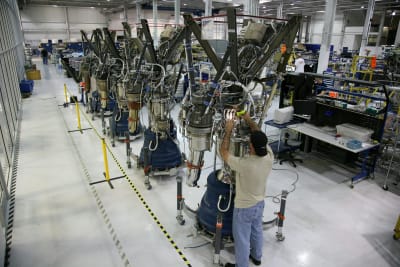In this comprehensive guide on computer engineering, we discuss crucial topics concerning the ever-growing field that has been the driving force behind so many incredible human innovations.
The field has also been a blessing for technically inclined individuals looking to start careers in an in-demand profession with incredible salaries and positive projections.
We explore the duties and responsibilities of computer engineers, what the field entails, the possible specialty areas, and the steps required to launch a computer engineering career anywhere in the country.
Candidates will also discover the potential salary to look forward to and the factors capable of influencing these figures.
What is Computer Engineering?
Computer engineering is a field of engineering that deals with computer systems and components. It is further divided into hardware engineering, which concerns physical computer components, and software engineering, which deals with computer programming.
Computer engineers work in several environments and industries, including research and development, electronic component manufacturing, peripheral equipment manufacturing, cyber security finance and insurance, systems design, and federal government agencies.
Below is a breakdown of the two main disciplines in computer engineering.
Computer Hardware Engineering
Computer hardware engineers, as the name implies, deal with the hardware of a computer – that physical part that can be felt and touched. Computer hardware includes the keyboard, screen, processors, circuit boards, memory devices, routers, and networks.
A computer hardware engineer may design or conceptualize these components. They may also test and update them to ensure compatibility with new software.
Software Engineering
While computer hardware engineers deal with the physical devices that make up a computer, software engineers are responsible for formulating the logic that governs how the hardware behaves.
They are usually charged with writing computer code that interacts with various hardware systems and creating testing models to gauge how the code performs and how it can be optimized.
How to Become a Computer Engineer
Below is a step-by-step breakdown concerning how to start a computer engineering career on the best possible path.
Step 1: Education
Computer engineers typically need a Bachelor of Science to give themselves the best possible chance of a successful career. Several institutions offer comprehensive computer engineering programs, including hardware and software engineering.
In a typical computer engineering program, candidates can learn key topics such as database operations, computer systems and networks, information technology, low-level and high-level programming languages, mobile and web development, machine learning, and integrated systems.
A computer engineering bachelor’s degree program may be structured as an on-campus or distance-based program where candidates can complete their coursework online.
Step 2: Practical Experience
Practical experience is as important for an aspiring computer engineer as it is in other engineering fields. The only difference is that practical experience for a computer engineer can be obtained online instead of in a field like civil engineering.
Of course, as a computer hardware engineer, hands-on training may also require working with actual components that may not be easily accessible online but in a manufacturing environment.
Candidates can acquire practical experience through internships, apprenticeships, and workshops.
Step 3: Cultivating Important Qualities
Along with their ability to carry out technical duties, aspiring computer engineers must also be able to develop other important qualities that may need to be more easily taught in a classroom. These include the ability to think analytically and use logic and reasoning to clarify goals and develop alternate solutions.
Computer engineers must also be able to communicate effectively and develop a detailed-oriented approach to their job.
Step 4: Career Advancement
Computer engineers are expected to continue advancing their careers by specializing in more advanced fields or earning more degrees, such as a Master’s or a Doctorate.
They may also leverage professional organizations for more career growth opportunities.
Computer Engineering Salaries & Employment Outlook
The Bureau of Labor Statistics distinguishes between the annual salary of computer hardware engineers and software engineers. According to data provided by the Bureau, computer hardware engineers in the United States earn an annual median wage of $132,360, while software engineers earn an annual median wage of $127,260.
The medium wage is the midpoint where an equal number of engineers made more and the same made less.
The data also revealed that computer hardware engineers in the United States who are among the highest 10% earn an annual salary of around $208,200, while those who are among the lowest 10% earn an annual salary of around $78,380.
Software engineers in the United States, among the highest 10%, take home an annual salary of around $159,740, while those among the lowest 10% take home an annual salary of around $71,280.
The best industries and establishments for computer engineers include scientific research and development, with an annual average salary of around $163,150; computer equipment manufacturing, with an annual average salary of $143,640; and semiconductor manufacturing, with an annual average salary of $931,950.
Software engineers in software publishing earn an annual average salary of $134,430, while those in finance and insurance earn an annual average salary of $128,960.
Career Outlook
The BLS projects that the demand for computer hardware engineers will grow by 5% between 2022 and 2032, while the demand for software engineers will grow by 25%. This figure is much higher than the average for other occupations.
There will be 4,600 job openings for computer hardware engineers and about 153,900 job openings for software engineers every year over the decade.
The projection’s reasons include replacing existing workers who transfer to different occupations and those who retire completely.
It will also be due to the continuing prevalence of computer systems in finance, manufacturing, government, and virtually every walk of life.
The rise of artificial intelligence is another key criterion. Machine learning models require sophisticated algorithms and competent software engineers, as well as immense processing power, which can only be achieved through advanced microprocessors and computer hardware.
Computer engineers will also be required to deal with cybersecurity threats (which are predicted to become more prevalent).




